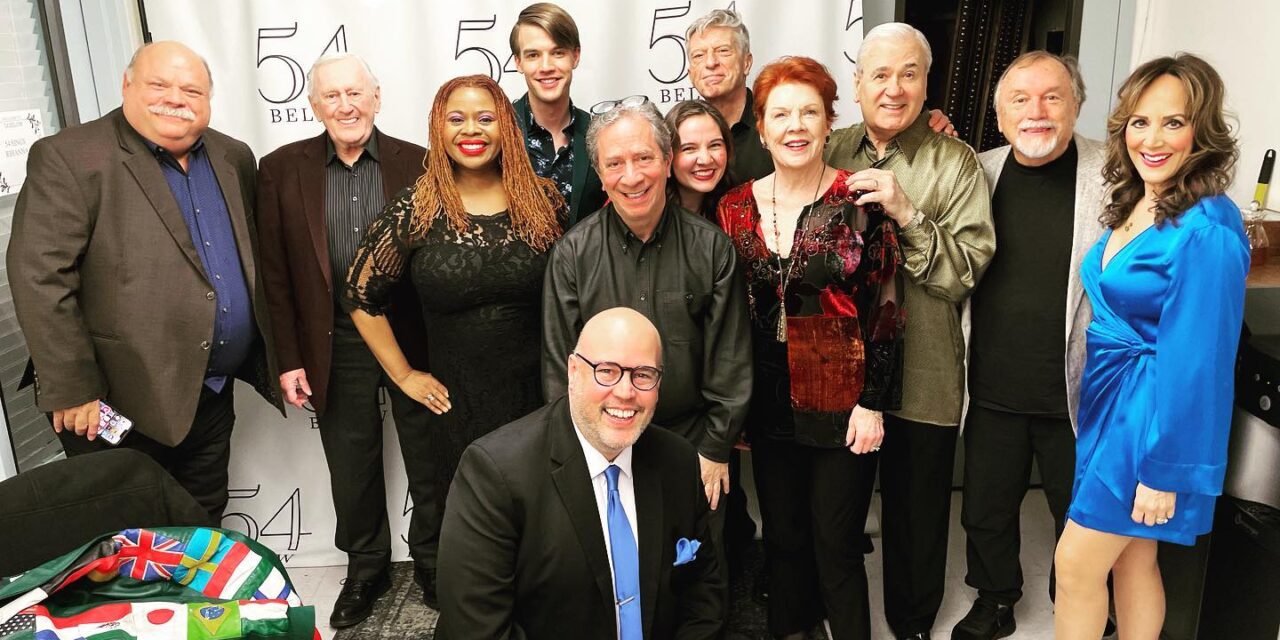By Marilyn Lester . . .
When Rob Schneider and Shannon Agnew were tasked to write a book for Routledge Press on Broadway’s 50 greatest musicals, the hardest part, no doubt, was selecting from hundreds of shows that have played on the Rialto from 1899’s The Rounders to the present. But the two dove in and went to work and the result was published in 2022 in Fifty Key Stage Musicals. Celebrating the accomplishment, in September 2022, Schneider produced Fifty Key Stage Musicals: The Concert! at 54 Below. The show was a success, leading to Part Two on February 8, 2023, with Schneider again hosting and music director Michael Lavine once more at the keys.
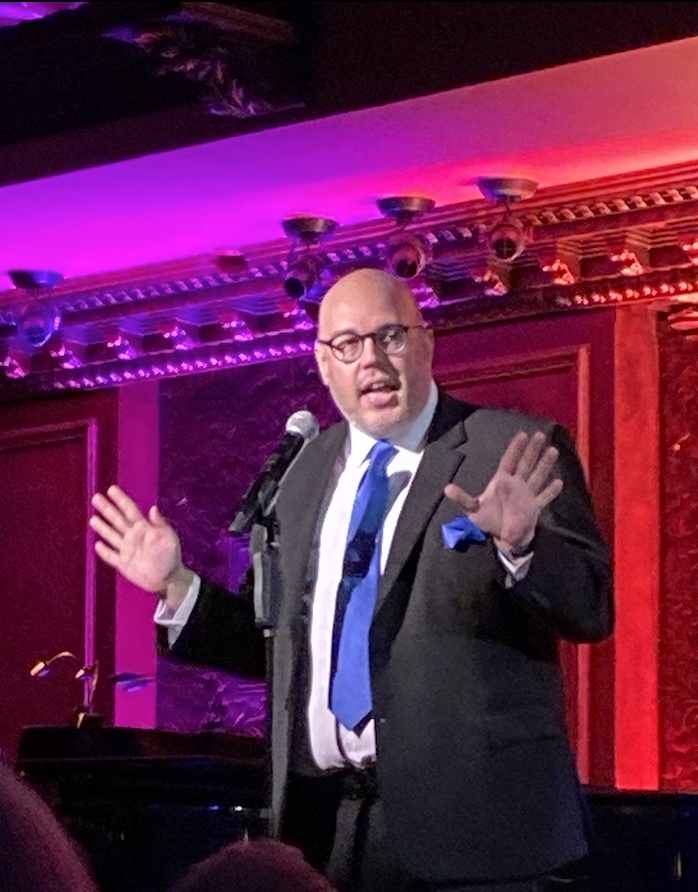
Following the “host at the podium” template, Schneider provided backstory and interesting tidbits about ten musicals selected for this edition, illustrated in song by a string of diverse and talented artists. Dramaturgy student Freddy Miller, studying at Carnegie Mellon University, helped put together factual items, which very much added to an appreciation of what we as an audience were hearing. A prime example was the observation that when Jerry Bock and Sheldon Harnick were writing Fiddler on the Roof in 1964 with book writer Joseph Stein, there was apprehension in the industry that the musical was “too Jewish.” But this mainstream window into Jewish culture was such a success that it’s still going strong at a global level. To sing the now iconic song, “If I Were a Rich Man,” Jim Brochu proved why he not only played a marvelous Tevye once upon a time, but was heralded for his own show, Zero Hour, about the life and career of the original Tevye, Zero Mostel.
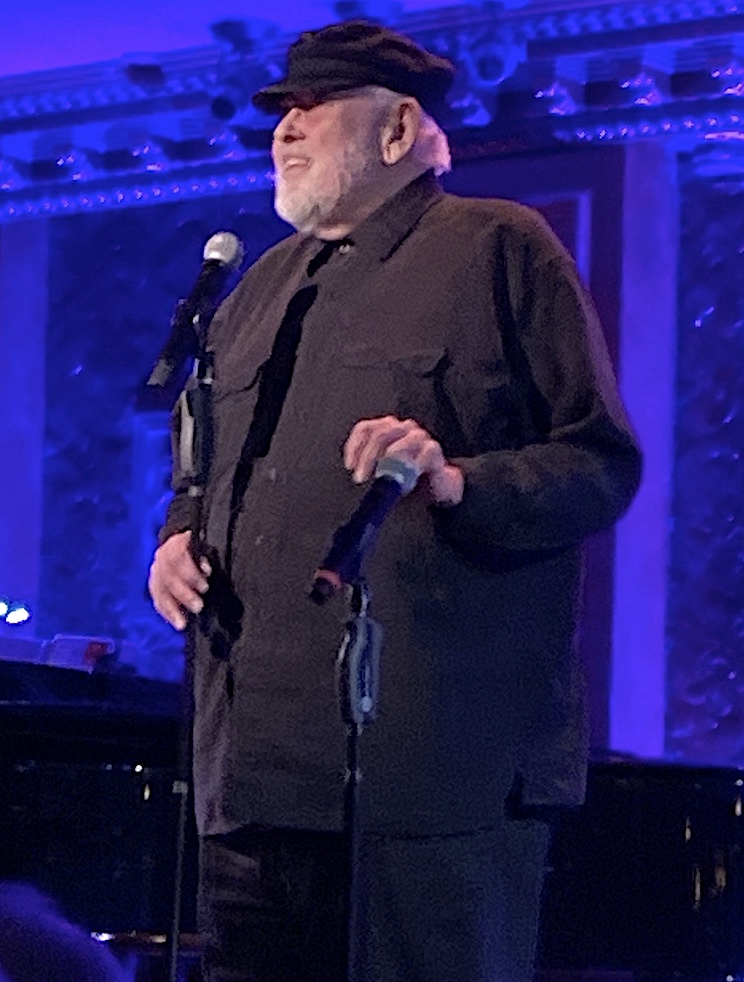

When Alexandra Amado Frost sang an earnest, impassioned “Hold On” from The Secret Garden (Lucy Simon, Marsha Norman), she was also paying tribute to the first Broadway musical created and mounted by an all-female team. Providing plenty of backstory about Phantom of the Opera (Andrew Lloyd Webber, Charles Hart) was George Lee Andrews who spent an amazing 23-year run in the show in the role of Monsieur André. Andrews did not sing, but reminisced; it was a fascinating personal peek into the mounting of the show, even if a tad long in the telling.
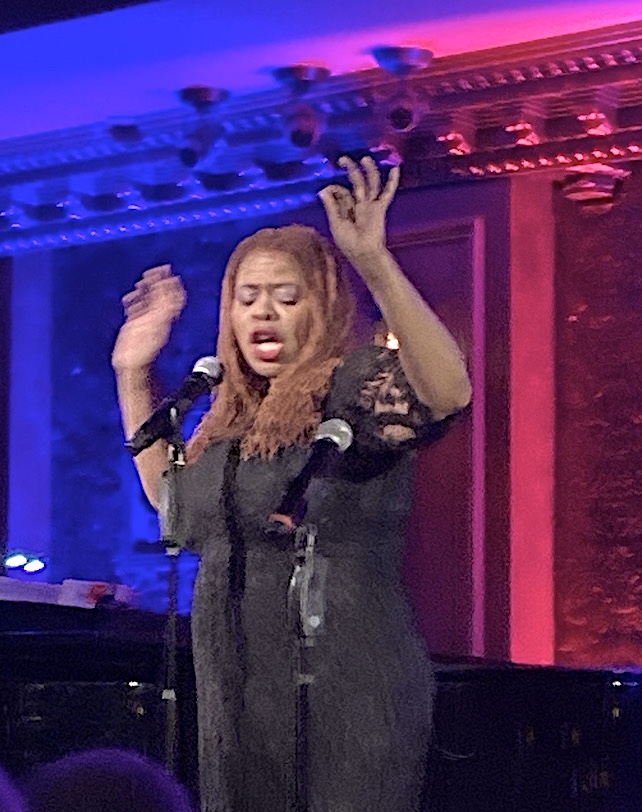

A couple of charming “youngsters”—Mark William and Caitlin Belcik—presented the title song from the oldest musical on the program, George and Ira Gershwin’s 1931 Of Thee I Sing. This pointed political satire was the first musical to win the Pulitzer Prize for Drama. But it wasn’t the first time the Gershwins did a send up of American politics; in 1927, in a collaboration with George S. Kaufman, they wrote Strike Up the Band, which played in Philadelphia. Fats Waller, a contemporary of the Gershwins, and hugely important Black songwriter, was celebrated in the equally important 1978 Black production Ain’t Misbehavin’ featuring Waller tunes, with lyrics by various writers. LaDonna Burns gamely tried her hand on “Cash for Your Trash” (lyric by Ed Kirkeby) but couldn’t find traction on this quirky novelty song.
Quirky also came in the form of Kevin Chamberlain and Janine LaManna’s “Notice Me Horton/Alone in the Universe” from Seussical (Stephen Flaherty, Lynn Ahrens), which went on to be a perennial favorite for school productions. Also cornering the youth market primarily, the legacy of Disney theatricals was represented in Beauty and the Beast (Alan Menken, Howard Ashman). A delightful Beth Fowler sang the lovely title song, after a Schneider introduction of how this production came to be, opening the door wide for the Disney presence on Broadway.
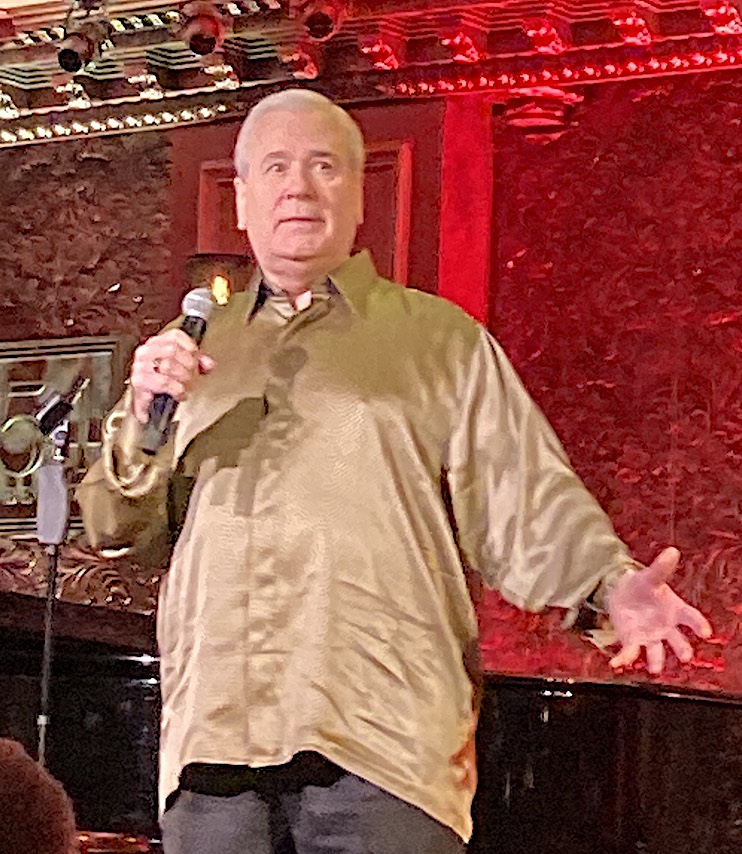

Michael Lavine, in addition to being a sought-after music director, is also a music historian with an enviable collection of sheet music. Among the encyclopedia of facts in his head and contained on his book shelves is an incredible knowledge of cut songs. He offered such a one, “When I Go Out Walkin’ with My Baby,” excised from Oklahoma! (Richard Rodgers, Oscar Hammerstein ll)—a musical that Schneider explained had every reason to fail before it actually made it to the Great White Way. The tune in question did have a life though: R&H eventually used it for State Fair two years later in 1945—the only Rodgers and Hammerstein musical written directly for film. Singing the iconic (that word again) “I Am What I Am,” from the iconic La Cage aux Folles by the iconic Jerry Herman, was one more icon—Lee Roy Reams. In addition to personal reminiscences, Reams also explained how La Cage was a defining moment for LGBTQ people, paving the way for an understanding of a non-heterosexual lifestyle. Having known Herman well, Reams delivered the song just the way Herman intended it be done—not as an anthem but as an honest declaration of selfhood.
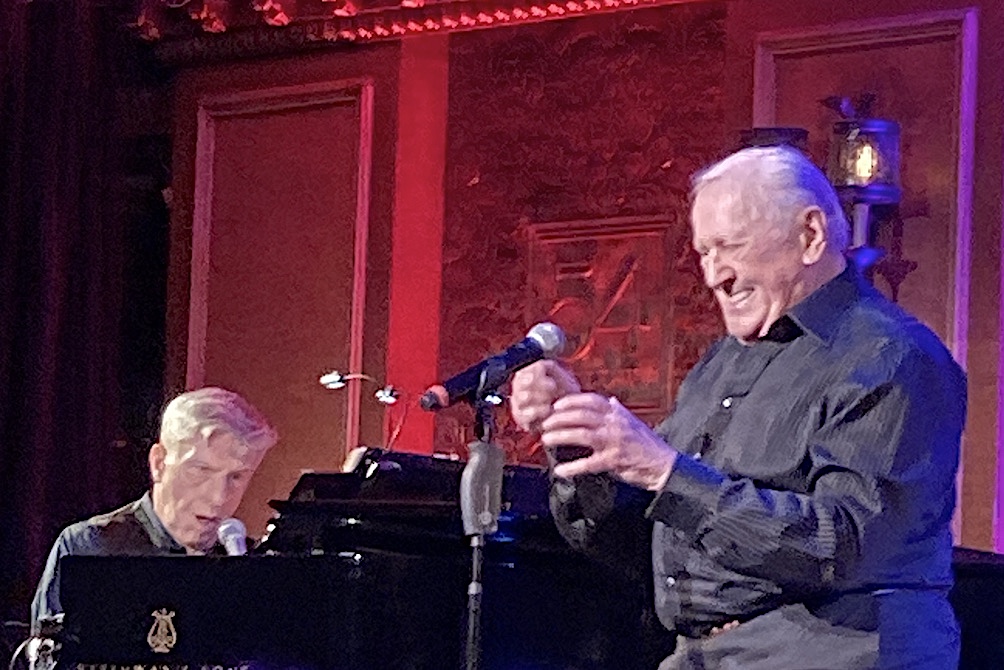

Wrapping up a mightily entertaining evening of great musicals was THE Sweeney Todd himself, another legend of Broadway, Len Cariou. With music director Mark Janas, it was stirring to experience a carefully crafted approach to what many consider one of Stephen Sondheim’s greatest works. But before starting, he noted that March 1 would mark the 44th anniversary of Sweeney Todd’s debut, but he’d no longer be able to note it with his annual call to his costar, THE Mrs. Lovett, Angela Lansbury (who passed away in 2022). Cariou then cogently and succinctly gave a synopsis of the plot before performing a magnificent medley of numbers from the musical, with Janas as Turpin providing vocals on a few duets. Cariou was simply perfection. His mastery of the role and pride and joy in having done it was vividly communicated to an enthralled audience. What a delectable cherry on a sundae of glorious Broadway musicals.
Photos: Marilyn Lester (except for featured photo)


